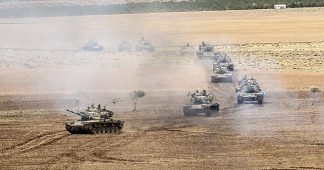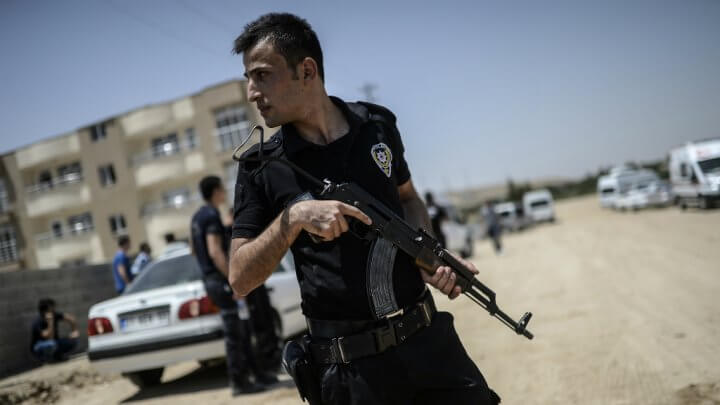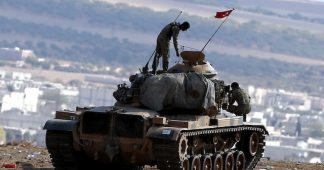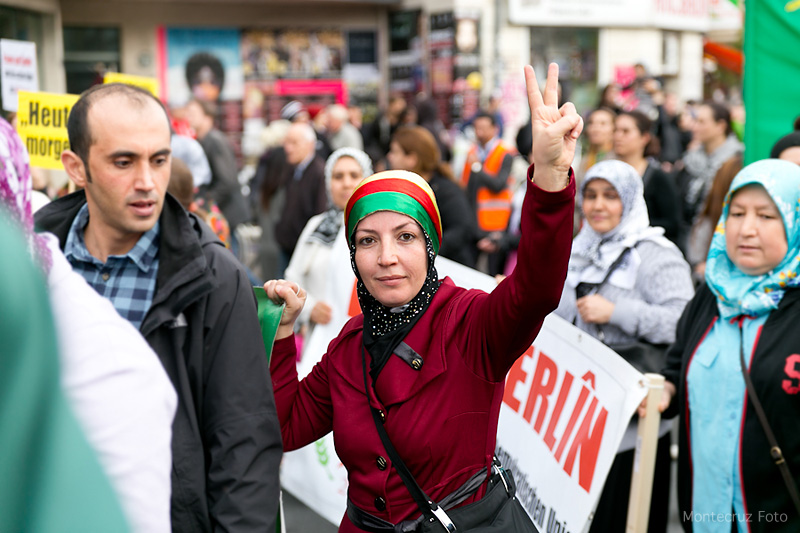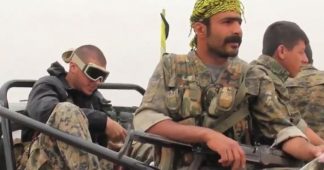By Barry Grey
Turkey has flatly rejected US demands that it halt its attacks on Syrian Kurdish militia serving as Washington’s proxies in the fight to dislodge the Islamic State from northern Syrian regions along the Turkish border.
Since Turkey launched its invasion of Syria on August 24, mobilizing Syrian Sunni militia funded, armed and trained by the CIA, it has increasingly directed its firepower not against ISIS, but rather against the so-called Syrian Democratic Forces (SDF), a Pentagon-backed formation dominated by the Kurdish People’s Protection Units (YPG).
As a result, two groups of US proxy forces in Washington’s five-year-long effort to topple the pro-Russian and pro-Iranian government of Syrian President Bashar al-Assad are at war against one another within Syria. The explosive contradictions of US policy are underscored by the fact that US Special Operations forces are embedded within the SDF, which is an American creation in the first place, and could come under attack from Sunni militia organized by the CIA under the rubric of the Free Syrian Army.
Less than two weeks ago, the US was scrambling jets against Syrian government war planes and threatening to attack if Syria did not halt the bombing of YPG forces involved in an offensive against Syrian government troops in the northern Syrian town of Hasakeh. The US at the time warned that its Special Operations troops deployed with the YPG were endangered by the bombing.
Washington characterizes its CIA-backed Sunni proxy forces as “moderate” and “democratic.” It is, however, indicative of their real character that they include the group Noureddine al-Zinki, which has received covert aid from the United States and its allies despite having ties to Al Qaeda-linked groups. A group of its fighters achieved notoriety by videotaping themselves beheading a young prisoner.
The Turkish invasion was launched with the full and public support of the United States, including air cover for Turkish tanks and troops and allied Sunni militia provided by US warplanes. US Vice President Joseph Biden, visiting Ankara for talks with Turkish President Recep Tayyip Erdogan on the day of the incursion, hailed the attack and ordered the YPG to immediately accede to Turkey’s demand that it pull its forces back to the eastern side of the Euphrates River.
However, once the Turkish-led invasion force had expelled ISIS from the Syrian border town of Jarabulus, Turkey began to attack Kurdish militia and towns to the south, with the near-term aim of dislodging the YPG from the city of Manbij. Earlier this month, after weeks of fighting against ISIS forces in Manbij, the YPG, backed by constant US bombing that claimed hundreds of civilian lives, took control of the strategic town.
Over the weekend, Turkish-led forces reportedly killed some 40 Kurdish civilians in air and artillery attacks on villages near Manbij controlled by the YPG.
Now the US is demanding of the Kurds that they cede control of the town, which they deem central to their goal of establishing a Kurdish enclave in northeastern Syria, while simultaneously denouncing the Turkish government for attacking its Kurdish proxies.
The government of President Erdogan on Wednesday responded to a series of demands from US officials the previous day that it halt its attacks on Kurdish forces in Syria by reiterating its intention to continue its invasion until all “terrorist” forces, Kurdish as well as ISIS fighters, had been eliminated. Ankara considers the YPG and its political arm, the Democratic Union Party (PYD), to be extensions of the Kurdistan Workers Party (PKK) in Turkey, which it brands a terrorist organization and against which it has been fighting for decades.
Prime Minister Binali Yildirim said that military operations “will continue until all terrorist elements have been neutralized, until all threats to our borders, our lands and our citizens are completely over.”
This followed a speech Sunday by President Erdogan in the southeastern town of Gaziantep, where 54 people were killed the previous week in a suicide attack on a Kurdish wedding. Erdogan declared, “We cannot tolerate any terror organization within or close to our borders. That’s why we are in Jarabulus. And, if necessary, we will not flinch from taking on similar responsibilities in other areas.” He added that “operations against terrorist organizations will continue until the end.”
Turkey dismissed reports of a temporary cease-fire between Turkish-led forces and Kurdish militia in Syria issued Tuesday by the US military and the Kurdish-backed Jarabulus Military Council.
To underscore Ankara’s defiance, Foreign Ministry spokesman Tanju Bilgic called US criticism of the scale and goals of the Turkish offensive “unacceptable” and announced that US Ambassador John Bass had been summoned to the ministry to discuss the matter.
Of immediate concern to Washington are the implications of the Turkish attack on the Syrian Kurds for the planned assault on the ISIS stronghold of Raqqa. In a Washington Post column published Tuesday, headlined “The US’s Syria policy rests on a treacherous fault line,” David Ignatius cites his own visit to a “secret US training camp in northern Syria” to vouch for the Pentagon’s view of the Kurdish-dominated Syrian Democratic Forces as the “backbone of the coming campaign to take Raqqa.” He frets that the “nasty fight between Turkey and the Syrian Kurdish militia” might delay the Raqqa operation.

